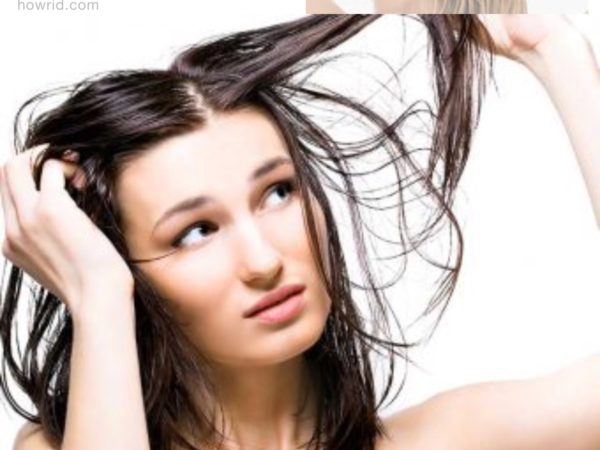Banish Smelly Hair Syndrome: Expert Tips for Fresh Locks
What causes smelly hair syndrome?
Smelly hair syndrome can be caused by various factors including excessive sweating, product buildup, bacterial or fungal overgrowth on the scalp, and hormonal changes. Poor hair hygiene practices and certain medical conditions can also contribute to the unpleasant odor emanating from hair strands.
What Causes Hair to Smell?
Why is my hair smelly? I hear this often from so many clients; there are the obvious reasons, such as not washing your hair enough as well as not rinsing well. But there is more to a smelly scalp & hair; many people have fungal infection-related hair issues that should be addressed by a dermatologist and may require medical treatment.
Use these tips for a smelly scalp, if your hair is excessively oily, or for deep cleaning.
Smelly hair syndrome, though often overlooked, can be a significant source of distress for many individuals. The underlying causes are varied, ranging from poor hygiene practices to various health conditions and other medical causes that warrant professional attention. Understanding the root of the issue is crucial in effectively combating the unpleasant odor that lingers in your locks.
If you find yourself grappling with smelly hair, consider incorporating expert tips into your hair care routine. These may include specialized shampoos targeting fungal overgrowth, adopting thorough rinsing habits, and seeking professional guidance when necessary.

Home treatment for smelly scalp syndrome
1) Mix 1 cup water with 1 tablespoon baking soda, apply to wet hair and work into scalp. Wash and condition.
2) Apple cider vinegar rinse. Mix 1/2 cup water with 1/2 cup apple cider vinegar, wash your hair, rinse, towel dry, and apply the mixture to the scalp and hair. No need to rinse, your hair will be shiny!
3) Natural honey treatment. Wash hair, emulsify a few tablespoons of honey in your palm and work through scalp, shampoo & condition. Honey is a natural humectant with anti-bacterial properties that lead to healthy hair growth
4) Water & Lemon Juice. Mix 1/2 cup water with 1 squeezed lemon massage into the scalp and wash.
5) Mix coconut oil or jojoba oil (1/2 cup) with a few drops of essential oil such as tea tree oil, and gently massage into clean hair. Be sure not to use too much essential oil since it can cause scalp irritation.
If your hair is just plain ole smelly, be sure to:
1) Not overwash which will strip your hair of natural oils and lead to dandruff.
2) Do not over-condition! Conditioner applied to your scalp will clog hair follicles leading to an overproduction of sebum. Too much conditioner will eventually leave your locks dull and dry hair.
3) Do not overuse styling products such as hair spray, gels, and alcohol-based mousse they will trap odor.
4) Do not overuse hair oils and silicone-based shine/detangling products. Both can cause overproduction of sebum, especially silicone products that are nonwater soluble. These products coat your scalp which can lead to smelly odors.
5) Do not scratch or touch your hair too much! You are assisting in oil production, spreading oil around your scalp and making the situation worse.
6) Wash wisely - when you feel your scalp is itchy - wash it!
Dry Shampoo and More for a Smelly Scalp
1) Dry shampoos, but only when your hair is dirty! Do not overuse since this can also clog hair follicles.
2) Hair Fragrance, sparingly! My favorite is Amika 001 Hair Fragrance it is lightweight, not too much alcohol, and has a subtle soft smell.

3) A light mist of your favorite perfume over your head.
4) Sleep with a hair wrap, pony, or braid to avoid spreading natural oil.
Conclusion
In the battle against smelly hair, it is crucial to adopt a balanced hair care routine. Avoid over-washing and over-conditioning which can lead to dandruff and dull, dry hair. Be mindful of using styling products that may trap odors and refrain from excessive use of hair oils and silicone-based products to prevent an overproduction of sebum. Additionally, limit touching or scratching your hair to minimize oil spread.
Can you have a yeast infection on your scalp?
Yes, it is possible to have a yeast infection on your scalp. This condition is known as tinea capitis and is caused by a fungus that affects the skin on your scalp. Symptoms may include red, itchy patches on the scalp, hair loss, and sometimes even pus-filled sores. It is important to see a healthcare provider for proper diagnosis and treatment if you suspect you have a yeast infection on your scalp.
Does Seborrheic dermatitis cause scalp odor?
Seborrheic dermatitis can indeed contribute to scalp odor. This common skin condition can lead to red, itchy, and flaky skin on the scalp, which may result in an unpleasant odor due to the build-up of oils and dead skin cells. Proper management of seborrheic dermatitis through medicated shampoos and treatments prescribed by a healthcare provider can help alleviate scalp odor associated with this condition.
Can too much oil cause a scalp smell?
Yes, excessive oil on the scalp can contribute to a foul odor. When there is an overproduction of sebum, it can mix with sweat and bacteria on the scalp, leading to a smelly scalp. It is essential to balance oil production by adopting a proper hair care routine and avoiding products that may exacerbate the issue.







